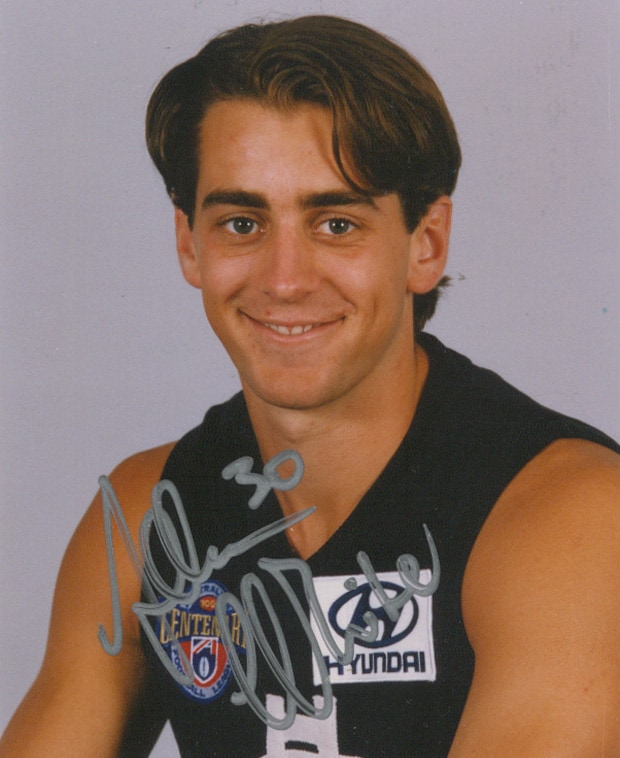It’s 20 years now since Adam White’s association with Carlton began; the boy from East Burwood having been cherry-picked with selection No.41 of the 1994 National draft.
For White, 44 senior games in the dark Navy Blue followed - amongst them the famous 1999 Preliminary Final where the good guys nutted Essendon at the MCG on the same day Bracks ousted Kennett at the ballot box.
Rather unfairly, he’s remembered as the player ko’ed by a field umpire at Football Park in ’97. But that was then, this is now and the bloke who wore Jarrad Waite’s No.30 thesedays dedicates his professional life to filmmaking.
“Filmmaking is the path I’ve taken, but it was the case even when I was playing . . . back then I was studying video production, photography and filmmaking at university,” White said.

Adam White during his playing days with the Blues. (Photo: Carlton Football Club)
“At Uni I learned how to shoot on film and edit on film, but we were all on the cusp of the digital age and you continue to adapt to the changing landscape.”
Over the past ten years, White has eked out a serious career from behind the camera, in listing amongst his directorial credits the short films A Black and White World, Toucan and Attack, along with the 10-episode TV series Kane & Disabled.
Recently, film and football club drew White back to Carlton, as director of a three-minute short commissioned by the club for the 2014 Virgin Australian Film Festival. The feature revolves around the story of Carlton’s Andrew Carrazzo and his deeply personal connections with his Italian lineage and the Carlton community.
Though White and Carrazzo had never before met (even given that the East Burwood and Carlton Football Clubs were common to both), the former found the latter and inspiration in what was a three-day shoot at Visy Park, the MCG and the Carrazzo family home.
“To put this in perspective, I wrote a script based on discussions I had with the team at Carlton and Andrew, but Andrew was able to put his passion into the story and I think the story came across more truthfully,” White said.
“You can write all the hyperbole you want, but when a person tells you his own story it sounds more real and you can see the truth . . . and this was a story Andrew was passionate about.”



